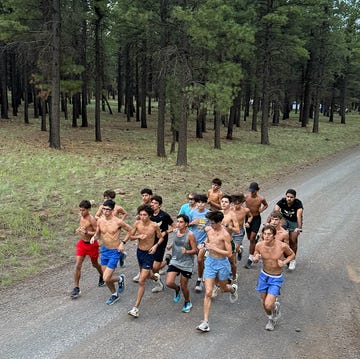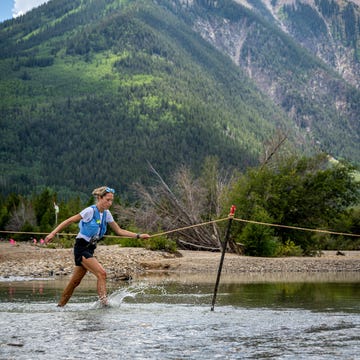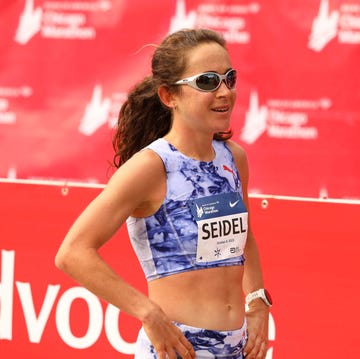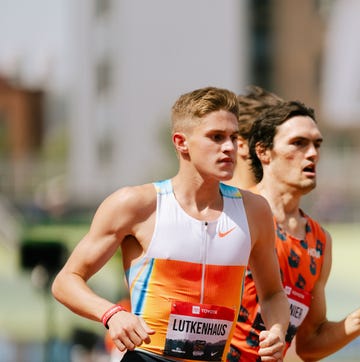Add another to the U.S. men’s medal haul in Paris: After making a gutsy charge into the lead with 350 meters to go, Kenneth Rooks was passed in the homestretch only by the reigning Olympic champion, Soufiane El Bakkali of Morocco, and won the silver medal in the 3,000-meter steeplechase final.
El Bakkali defended his title in a season’s best of 8:06.05. Rooks was close behind in a personal best of 8:06.41. Abraham Kibiwot of Kenya won the bronze in 8:06.47.
Early on, the race looked like an Ethiopian team effort to help their world record-holder, Lamecha Girma, finally beat El Bakkali. Girma finished second to the Moroccan at the 2021 Olympics and 2022 and 2023 world championships. A fast opening kilometer of 2:40.53, which is 8:01.5 steeple pace, looked like the initial strike.
But Girma’s domestiques didn’t sustain the surge. The rest of the field, including Rooks, began to catch back up with three laps to go. The second kilometer was a much milder 2:49.74. Girma ran out in lane 3. Fifteen of the 16 entrants looked to be in contention as they approached the penultimate water jump with just more than 500 meters to go.
It’s tricky enough to have a large pack hit the bell lap together in a standard race. But in the steeplechase, with its unmovable barriers, it’s downright dangerous. Sensing that peril as well as the opportunity, Rooks, the 2023 NCAA champion, shot to the lead in the first turn of the final lap. El Bakkali and Girma had to cover the move. Only El Bakkali mananged to, as Girma tripped over the barrier on the backstraight, fell hard to the ground, and never resumed running.
Girma was taken off of the track on a stretcher, and an update on his condition was not immediately available.
Rooks was clearly all out coming off the final water jump, while El Bakkali’s momentum suggested he had a little more life. But not much—his winning margin of .36 seconds was the smallest since 2008.
Talking to reporters after the race, Rooks said he was worried about all the people in contention at the end. “That’s one of the reasons why I wanted to take the lead, is because I didn’t want to deal with the crowd on the last lap,” he said.
His plan was not to go out too hard too early. Rooks said he knew the pace was fast. He wanted to maintain contact and be ready to use his kick.
“It was an amazing feeling to take the lead that last lap and to just let loose and and go for it and realize that, like, I might actually win the thing for a second,” he said. “And then when I got caught at the end, to realize that also, it was just us three, I was going to get a medal as long as I finished. I mean, it’s just a dream.
“Sometimes, like when you’re going to bed, you think about moments like this,” he continued. “To be able to live it is just incredible.”
Rooks’s silver adds to an already-impressive medal haul by U.S. men in Paris. Last Friday, Grant Fisher won bronze in the 10,000 meters. In the 1500-meter final on Tuesday, Cole Hocker won gold and Yared Nuguse earned bronze.
Rooks was in the stadium on August 2 to see Fisher run, and he watched the men’s 1500 meters on August 7 on television with his family. Rai Benjamin, who was running in a semifinal heat of the men’s 400-meter hurdles, told Rooks he would warm up the track for him.
Apparently, he did. The U.S. success on the track has been contagious.
“It has been really inspiring,” Rooks said. “It’s been electric.”















